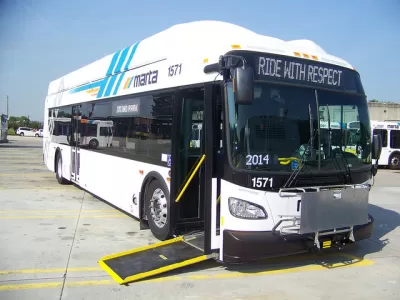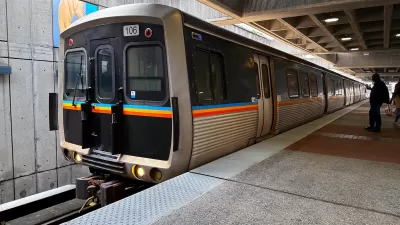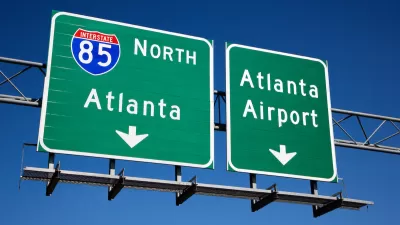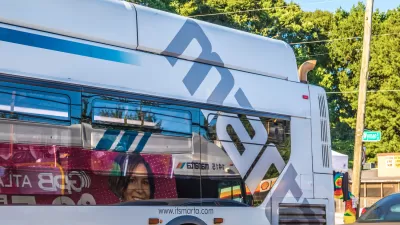Atlanta transit users will likely have to trade higher frequency for fewer routes based on a new plan approved by a planning committee last week.

According to an article by David Wickert in The Atlanta Journal-Constitution, the Metropolitan Atlanta Rapid Transit Authority (MARTA) board’s planning committee approved a plan to boost service frequency and reduce the number of bus lines in the system.
“MARTA believes the new bus service will increase ridership by prioritizing more frequent service on busy routes. But the final plan will likely spark an outcry from MARTA customers who lose routes they currently rely on.” A survey of MARTA riders showed divided opinions, with 54 percent of respondents saying they want more frequent service on fewer routes and 35 percent preferring less frequent service across a larger area. Under the new plan, buses would run every 15 minutes. The agency plans to approve a finalized plan in the fall.
While bus ridership remains at just 60 percent of pre-pandemic levels, many Atlanta-area residents depend on MARTA’s services for their daily trips. “One thing that could soften the blow of reduced routes: MARTA is developing an on-demand transit system that could serve residents in neighborhoods that lost fixed-route bus service.”
Earlier this year, MARTA announced it would scale back its expansion plans and change a proposed light rail line to bus rapid transit (BRT) due to budget constraints.
FULL STORY: MARTA leans toward more frequent bus service on fewer routes

Alabama: Trump Terminates Settlements for Black Communities Harmed By Raw Sewage
Trump deemed the landmark civil rights agreement “illegal DEI and environmental justice policy.”

Study: Maui’s Plan to Convert Vacation Rentals to Long-Term Housing Could Cause Nearly $1 Billion Economic Loss
The plan would reduce visitor accommodation by 25% resulting in 1,900 jobs lost.

Planetizen Federal Action Tracker
A weekly monitor of how Trump’s orders and actions are impacting planners and planning in America.

Wind Energy on the Rise Despite Federal Policy Reversal
The Trump administration is revoking federal support for renewable energy, but demand for new projects continues unabated.

Passengers Flock to Caltrain After Electrification
The new electric trains are running faster and more reliably, leading to strong ridership growth on the Bay Area rail system.

Texas Churches Rally Behind ‘Yes in God’s Back Yard’ Legislation
Religious leaders want the state to reduce zoning regulations to streamline leasing church-owned land to housing developers.
Urban Design for Planners 1: Software Tools
This six-course series explores essential urban design concepts using open source software and equips planners with the tools they need to participate fully in the urban design process.
Planning for Universal Design
Learn the tools for implementing Universal Design in planning regulations.
Caltrans
Smith Gee Studio
Institute for Housing and Urban Development Studies (IHS)
City of Grandview
Harvard GSD Executive Education
Toledo-Lucas County Plan Commissions
Salt Lake City
NYU Wagner Graduate School of Public Service





























